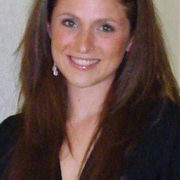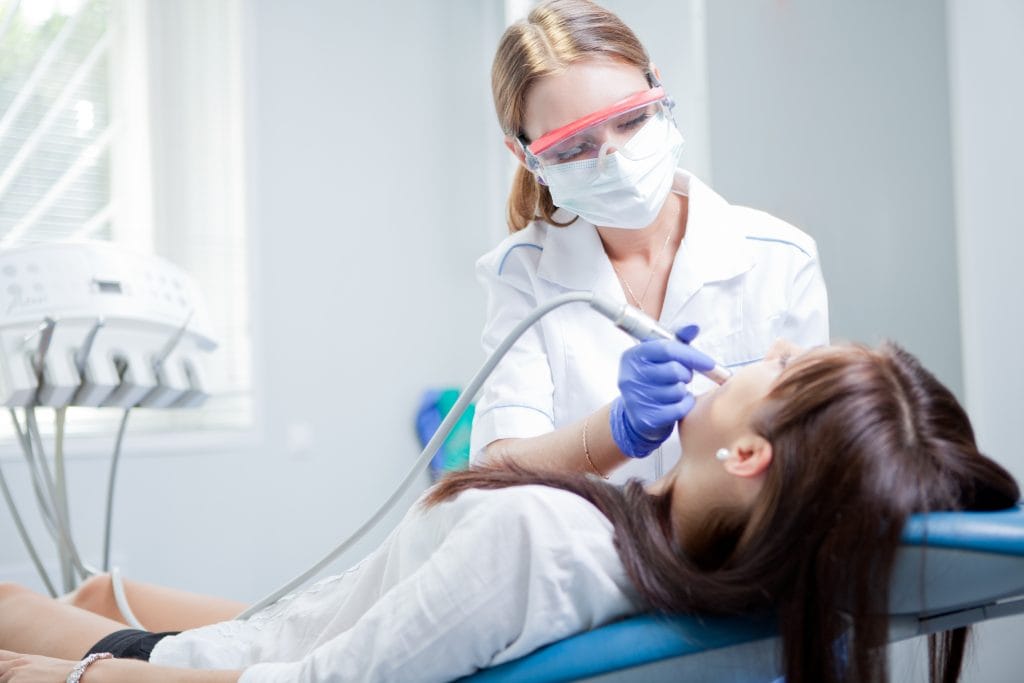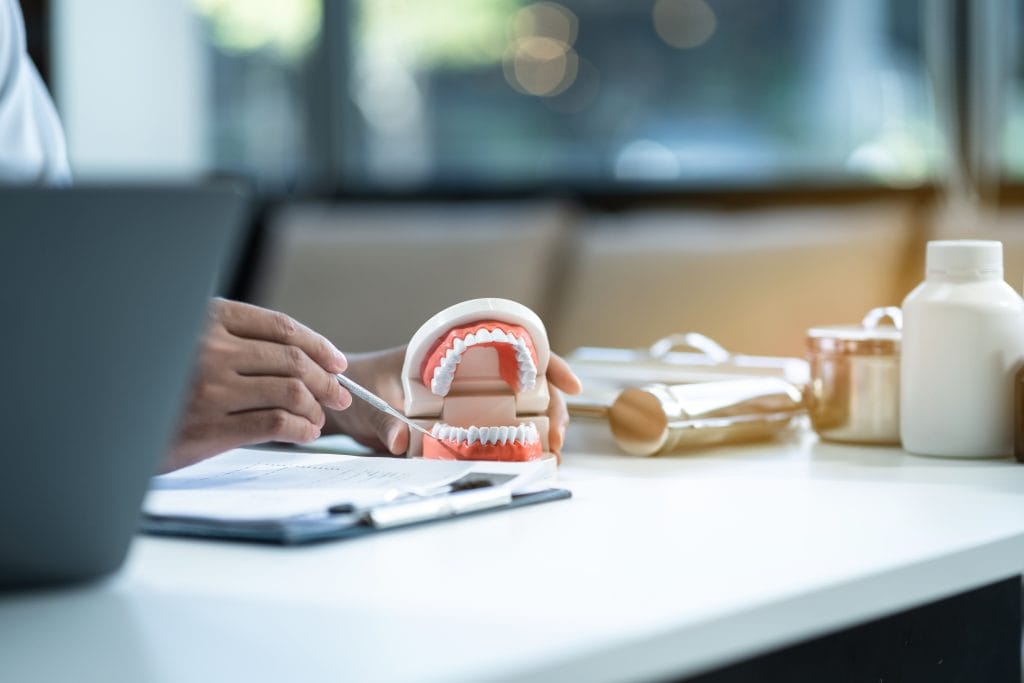Last updated on October 16th, 2025 at 07:22 pm
For this week’s blog post, we are republishing a fantastic article from several years ago by MGE Consultant Dania Williams. We’ve received a ton of requests for this information recently, so we figured we’d put it up again for anyone who missed it. Enjoy!

By Dania Williams, MGE Consultant
The majority of dentists I speak with are of the opinion that Public Relations (PR) Directors are only for extremely large dental offices. They simply don’t see how a PR Director would be useful or worth the expense in an average-sized office.
A good PR Director, however, can be very worthwhile for any size of practice. This becomes evident when you begin to lay out what a PR Director actually does. And yes, it really is a full-time job.
So what does a PR Director actually do?
A PR director is in charge of “expansion.” In a dental office, this has a lot to do with new patients.
The statistic of new patients in the door is assigned to the PR Director. The first step to making a statistic increase is to assign that statistic to someone and make them responsible for it. Just the fact of having someone concentrate on the statistic and dedicate time and effort toward it will often be enough to make it rise.
(Related: Press Releases: An Easy, Low Cost Way to Attract New Patients)
The doctor and the office manager are involved in production and handling day-to-day affairs, which doesn’t leave a lot of time for outgoing activity to attract a flood of new patients. But when the statistic of new patients in the door is assigned to the PR Director, it becomes “their baby.” They live and breathe new patients.
The actual activities done by the PR Director will vary depending on your locale. The PR Director should discover what is effective for your area. They should find out what people listen to and read in your area, who they listen to, where they go, where they gather, etc. Which radio stations do the demographic(s) you are trying to reach listen to; what newspapers do they read? What social groups are they a part of? Which businesses do they work in?
Once the PR Director has answered those questions and more, they begin forming relationships. They begin communicating out in the environment and reaching potential new patients. They build alliances with the people and businesses in the area surrounding the office.
I said earlier that this is a full-time job, but it is only part-time in the office. Much of the job is done outside the office. The Public Relations Director should be out creating good relations in the environment.
I can give some examples of activities that PR Directors I’ve known have had success with:
Some go to health fairs and set up booths where they can educate passers-by about their oral health and get them scheduled for appointments.
 Several offices have put offers up on www.groupon.com with massive response. This has big potential but only if it’s done right. If you want to do a Groupon offer, be wary of these things:
Several offices have put offers up on www.groupon.com with massive response. This has big potential but only if it’s done right. If you want to do a Groupon offer, be wary of these things:
- Look into capping the number of responders, so you don’t end up completely overwhelmed. And DON’T clear out the rest of your schedule to make room for only Groupon patients. Keep up the recare, routine new patient flow, and normal production while running the Groupon program.
- Keep an eye on profitability. Don’t make an offer that cuts your profit margin down to pennies – unless it’s you’re quite sure it’ll be worth it for you, like a low-priced cleaning or whitening that will pay off on the back end when you find more treatment the new patients need to do. Offering something like Invisalign, for instance, at a hugely reduced price might not be worthwhile.
- Be prepared to get a lot of “tire kickers” and “deal hunters.” People go on Groupon looking to get a quick deal, so there’s going to be a lot of people coming in for their cheap cleaning and then getting the heck out. This means you’d better have great service and great case presentation skills to retain these patients and get production out of it.
Speaking at school assemblies to educate children about oral health is another good one.
(Related: Branding a Dental Practice – Yes It’s Actually Important!)
One office located in a big bustling city hired someone to dress up – believe it or not – as a big tooth and point pedestrians toward the office. This one seems especially silly but it actually worked!
 Charity work is a great way to hit three birds with one stone: give back to the community, become well thought of, and get your name out there. I suggest holding several public charity events throughout the year. These can be charities like “Toys for Tots” where you invite other businesses in the area to come bring toys and present them to children in need.
Charity work is a great way to hit three birds with one stone: give back to the community, become well thought of, and get your name out there. I suggest holding several public charity events throughout the year. These can be charities like “Toys for Tots” where you invite other businesses in the area to come bring toys and present them to children in need.
And when you do hold these charity events, the PR Director should take plenty of photos and then write a press release (a news story about it) and send it to the local newspapers. This works best if the PR Director has already formed a relationship with the editor of the newspaper. In fact, inviting the editor to attend the event is the very best way to do it.
I know of one client who made his own newspaper clipping about charity work he had been involved in and mailed it out with a special new patient exam offer whereby half of the proceeds would be donated to the charity. He got a big rush of new patients coming in from it.
As you can see, there is a wide array of potential avenues to get communication out and bring in new patients. It’s a job that requires creativity. It requires someone that cares about the expansion of the practice and can come up with ideas on their own. If this job is held by a person who will only wait for orders before acting, it might not work out. When you interview a candidate for PR Director there are a few things you should look for:
Make sure that they are someone who could properly represent you and your office.
Make sure that they are the type of person who likes to go out and communicate and meet new people.
 Above all, make sure that they are a person who can take initiative and can come up with ideas on their own and create new ways to attract patients. You can establish this in the hiring interview by asking questions like, “If I ask you to get 50 new patients this month, what would you do?” and listen to their answer. It doesn’t even matter in the interview if they have good or bad ideas, they can learn to improve them; the point is that they have ideas. If they can’t come up with anything or only have a couple ideas, they might not fit the position.
Above all, make sure that they are a person who can take initiative and can come up with ideas on their own and create new ways to attract patients. You can establish this in the hiring interview by asking questions like, “If I ask you to get 50 new patients this month, what would you do?” and listen to their answer. It doesn’t even matter in the interview if they have good or bad ideas, they can learn to improve them; the point is that they have ideas. If they can’t come up with anything or only have a couple ideas, they might not fit the position.
(Related: Dental Internet Marketing 101 – Part 1)
The PR Director should also coordinate with the marketing company you use or the employee you have dedicated to this (if you have one), and plan campaigns using your website, newsletters, mailers, emails, ads, etc.
The PR Director should always be in tight coordination with the office manager as well, who would be their direct supervisor. Much of their job is out of the office, but they should not be off on their own, out of contact with the doctor and OM. Typically, they would come into the office in the morning to coordinate with the office manager, receive daily/weekly/monthly goals just like every other staff member, and write out a plan of action to accomplish them.
When the job of PR Director is done right, the office becomes very well-known and gets a very good reputation in their area. This is a full-time job and when done right the return on investment is huge. The important thing is that the person can really create the job and go out and come up with ways to reach more people.
If you marry up a good candidate with the MGE PR Director Training Program, you can really win BIG. But training someone who isn’t right for the job can dilute the results.
From my personal experience when a client hires a good PR Director, the office receives an average of 30 additional new patients the very first month (at the beginning of their training). This won’t be true for everyone for various reasons, but that’s the average that I’ve seen. Doctors and office managers simply don’t have either the time or the training to do this job to its fullest potential without hiring someone to specialize in it.
For Part II of this series, click here.
Dania Williams provides this general dental practice management advice to furnish you with suggestions of actions that have been shown to have potential to help you improve your practice. Neither MGE nor Dania Williams may be held liable for adverse actions resulting from your implementation of these suggestions, which are provided only as examples of topics covered by the MGE program.


